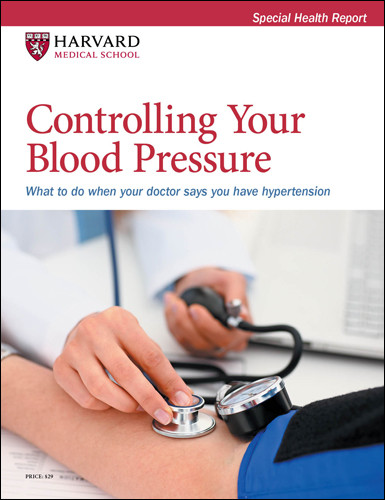Does coffee help or harm your heart?
Americans' favorite morning brew has gotten mixed reviews over the years. Here's a closer look at some of coffee's cardiovascular effects.
- Reviewed by Christopher P. Cannon, MD, Editor in Chief, Harvard Heart Letter; Editorial Advisory Board Member, Harvard Health Publishing

Many people can't imagine starting their day without a cup or two of coffee. Despite its popularity, however, coffee has been a bit controversial when it comes to heart health.
"The thinking about coffee's effects on the heart has swung in both directions," says Dr. J. Michael Gaziano, professor of medicine at Harvard Medical School. In the 1960s, coffee was considered a risk factor for coronary artery disease, although later research suggested that only heavy coffee consumption (more than five or six cups a day) might harm the heart. But people who drink excessive amounts of coffee often differ in many other ways from those who enjoy modest amounts, Dr. Gaziano notes.
A java jolt?
Because coffee contains caffeine, a stimulant, people have long wondered whether drinking coffee might "jazz up" the heart, triggering palpitations (the odd sensation of a skipped, missed, or strong heartbeat) or atrial fibrillation (a heart rhythm problem marked by a rapid, irregular heartbeat).
However, people who drink moderate amounts of coffee (one to three cups per day) actually appear to have a lower risk of atrial fibrillation, according to a 2019 study co-authored by Dr. Gaziano. Those who drank either more or less coffee were no more or less likely to develop atrial fibrillation, the study found.
Like a lot of dietary research, that study was observational: people reported what they consumed and researchers tracked their health over many years. But a new study took a different approach — it directly measured the short-term effects of drinking coffee (see "The coffee connection: More steps, less sleep, possible palpitations?").
The coffee connection: More steps, less sleep, possible palpitations?Many coffee drinkers appreciate the energizing buzz from a morning cup of joe. But does that boost have any short-term effects on the heart or other heart-related behaviors or risk factors — namely, exercise, sleep, and blood sugar levels? To find out, researchers put wearable sensors on volunteers for a two-week period. Their study, the Coffee and Real-time Atrial and Ventricular Ectopy (CRAVE) trial, was published March 23, 2023, in The New England Journal of Medicine. (Atrial and ventricular ectopy refers to premature contractions of the heart's upper or lower chambers. People typically experience these as strong, fast, or irregular heartbeats, known as palpitations.) Who: 100 healthy men and women, average age 39. What: Participants wore three separate devices: one that tracked activity levels and sleep, one that measured blood sugar, and one that monitored heart rhythm. They were also tested for common genetic variants that affect how quickly people metabolize caffeine. How: Researchers directed participants to drink as much caffeinated coffee as they wanted for two days and to activate the heart monitor after every cup they drank. They were then to abstain from coffee for two days. They repeated this cycle for 14 days. Key findings: On the days people drank coffee, they took an average of 1,000 extra steps per day. But they slept about 36 fewer minutes per night, on average. Coffee drinking had no apparent effect on blood sugar levels. And while coffee consumption did not increase premature atrial contractions, it did appear to slightly increase the incidence of premature ventricular contractions. Genetic differences in caffeine metabolism had no meaningful effects on any of these outcomes. |
Steps and sleep
"This new trial provides an important piece of the puzzle," says Dr. Gaziano. One finding — that people took more steps on coffee-drinking days — upholds other research showing that caffeine can slightly enhance physical performance. On the other hand, caffeine's adverse effects on sleep are also well known, and insufficient sleep is increasingly recognized as a risk to cardiovascular health.
It's hard to know whether the extra exercise balances out the decreased shut-eye people may get from drinking coffee. Most people know how they react to coffee and adjust their intake accordingly, says Dr. Gaziano, who enjoys a daily cup that contains half decaffeinated coffee.
Limitations of the study
But like all studies, the new study has limitations. For instance, it included only relatively young, healthy coffee drinkers. So the findings may not apply to older people, who tend to be more likely to have palpitations. In fact, people who avoid coffee (and so weren't part of the study) may avoid the beverage because they notice it triggers palpitations.
Other heart-related effects
The study also discovered that drinking coffee led to a slight increase in premature ventricular contractions. These brief rhythm disruptions (which can feel as though the heart is pounding or flip-flopping) are common and usually harmless, especially in healthy people. However, people with heart disease who notice persistent, odd heart rhythms should talk to their doctor.
Earlier research has investigated coffee's effects on other common heart-related risks. Although drinking coffee raises blood pressure, the effect is temporary and doesn't make you more likely to develop high blood pressure; it may even lower your risk. Unfiltered coffee, such as French press coffee and espresso, contains compounds that may raise harmful LDL cholesterol. But the effect is likely trivial compared with the rest of your diet, especially if you drink no more than two cups of unfiltered coffee daily.
"The question I have is, what is the overall impact on the outcome I care most about, which is cardiovascular disease?" says Dr. Gaziano. When you look at the evidence as a whole, coffee doesn't seem to have a positive or negative effect, he says. If you like coffee, enjoy up to a few cups per day — as long as it's not interfering with your sleep. And don't dump a lot of cream and sugar into your coffee, since that adds saturated fat and empty calories, he adds.
Image: © PeopleImages/Getty Images
About the Author

Julie Corliss, Executive Editor, Harvard Heart Letter
About the Reviewer

Christopher P. Cannon, MD, Editor in Chief, Harvard Heart Letter; Editorial Advisory Board Member, Harvard Health Publishing
Disclaimer:
As a service to our readers, Harvard Health Publishing provides access to our library of archived content. Please note the date of last review or update on all articles.
No content on this site, regardless of date, should ever be used as a substitute for direct medical advice from your doctor or other qualified clinician.
















